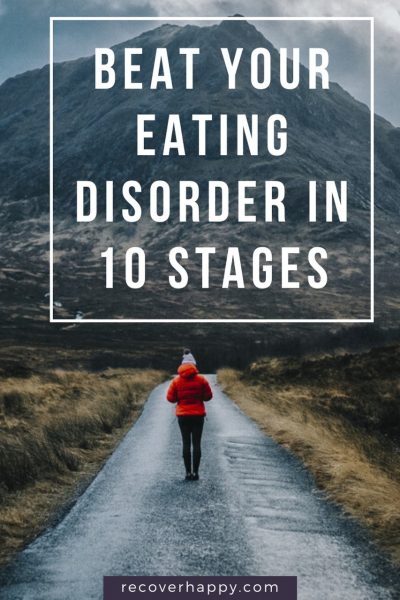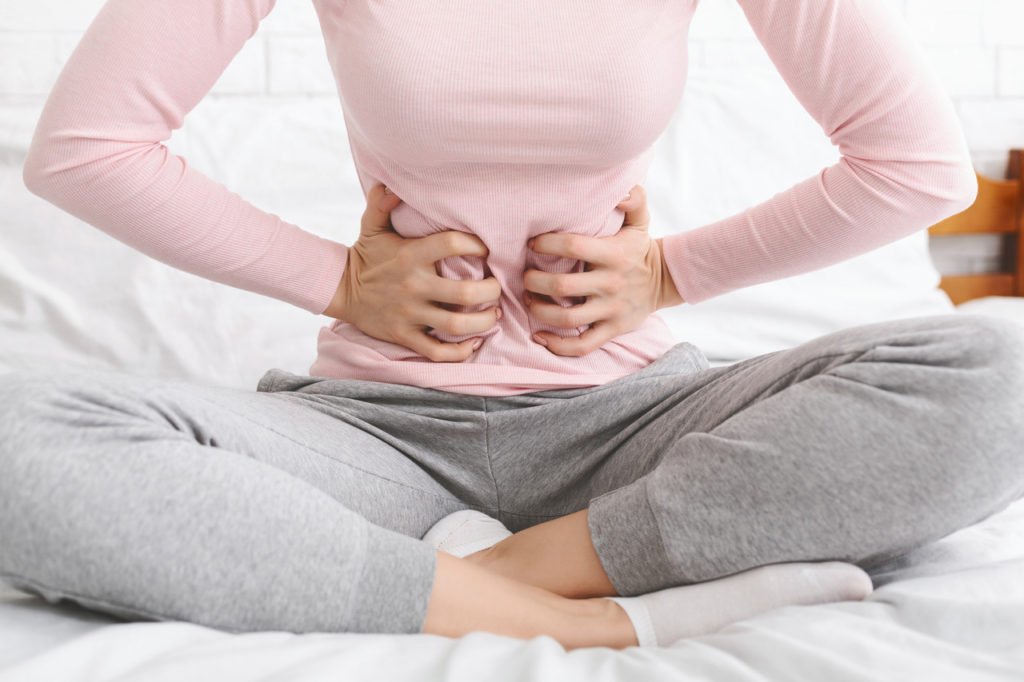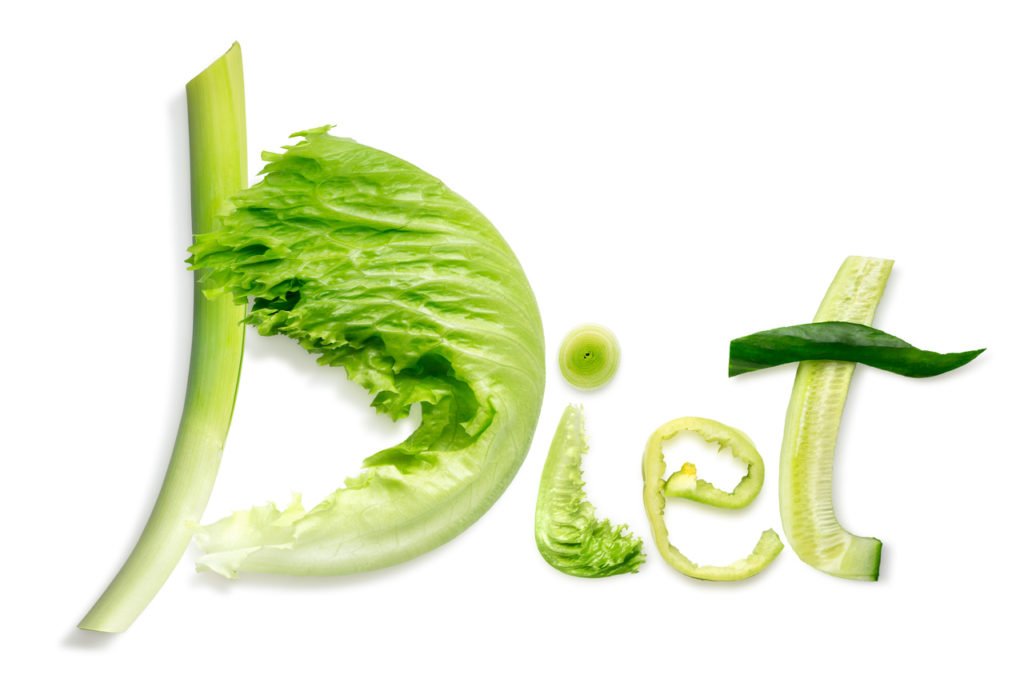Recover from your eating disorder! The 10 stages of recovery
By Tanja, Psychologist for Eating Disorders & Body Image

What are your thoughts when it comes to your eating and workout patterns? Do you think that you have everything “under control”? Or do you know you might have an eating disorder, but you think it is not that serious or not important?
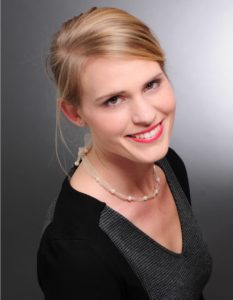
Hi there!
I’m Tanja. I’m a qualified psychologist specialising in eating disorders, negative body image and body hate. I’m also a survivor of anorexia.
My mission is to help you to end your lifelong struggles with food and your body and inspire you to uncover and embrace you true worth. Read more…
Maybe you really want to recover from your eating disorder but you don’t know how or are afraid to tackle it.
Recovery from an eating disorder takes time. It depends on the severity of your eating disorder, how quickly you start your recovery and how many relapses you have. Usually, it is said that an eating disorder recovery takes between 6 and 18 months. However, everybody is different, so don’t rush your recovery or blame yourself if you need longer. Also, complete mental recovery often takes longer than physical recovery.
If you want to read more about how you can start your eating disorder recovery, read my article How to start your eating disorder recovery successfully.
Knowing your eating disorder recovery stage and what to expect from this can be very helpful for your recovery. In the following, I will show you the 10 eating disorder recovery stages, which were identified by Carolyn Costing and Gwen Grabb in their book “8 Keys to Recovery From an Eating Disorder” and I will share my personal experience of going through each of these eating disorder recovery stages.
Join the Body Acceptance & Food Freedom Collective
Receive a weekly dose of inspirations to help you make peace with your body and food.
Don’t worry, we hate spam too. You can unsubscribe any time.
Categories
Anorexia
Binge Eating Disorder
Bulimia
Intuitive Eating
Mindfulness
Orthorexia
Strategies for Recovery
1. “I don’t think I have a problem”
For a long time, you don’t think you have a problem and you believe that you have everything under control. You might even feel fabulous and full of energy. Sure, sometimes you feel very bad and deep down you know that your eating disorder plays a big part in your life, but overall you finally have control over your life. So everything seems fine.
I experienced the first of the eating disorder recovery stages exactly like this. Even though people were worried about me and tried to talk to me, I always told them to leave me alone. I thought that this was my body and not their business. I also always justified my low weight by telling others that there are so many other people around me who are much thinner than me.
2. “I might have a problem, but it’s not that bad”
You might realise that not everything is fine. Maybe you start to feel some physical symptoms of your eating disorder. The sore throat, the lack of energy, the dizziness, the rapid weight gain or loss, the pain in your stomach or the difficulties in concentrating. The constant thoughts about food and worries about your weight might wear you down. But even though you experience some problems, you still feel ok.
During this eating disorder recovery stage, I didn’t have any major physical symptoms, so I thought I was ok. Even though I had lost a lot of weight in a short period, I justified this by telling myself that my BMI (Body Mass Index) was still high and plenty of other people were losing more weight than me.
At the same time, my eating disorder voice was becoming stronger and stronger. But at this eating disorder recovery stage, I still believed that I had everything under control and could go back to a “normal” eating behaviour when I wanted to.
3. “I have a problem, but I don’t care”
You now realise you have an eating disorder and that it has taken over your life. But you don’t want to live without your eating disorder, because it makes life easier and makes you feel better. Your eating disorder might distract you from your other problems. It might even give you a purpose in life and a sense of worth and self-control. You don’t need anyone to help you, because your eating disorder is always there to help you. You could recover, but you don’t want to get better.
I knew that there was something wrong, but I didn’t want to change. I knew that I was not eating enough and that my dieting was harming my body – I wasn’t having periods anymore and I was freezing all the time.
But it was working for me, so I didn’t care. I was so proud of myself for having enough discipline to follow my strict dietary rules and control my will and body. At this eating disorder recovery stage, I had no interest in getting better.
If you want to know more about how you can challenge your food rules, read my article Food rules: How to disobey them.
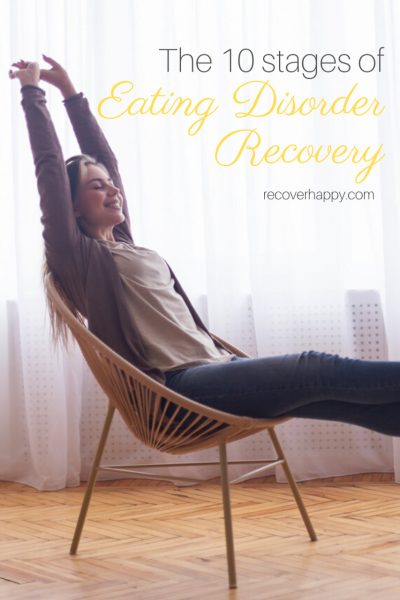
4. “I want to change, but I don’t know how and I’m scared”
You are not sure if you want to keep going like this. You want to eat normally, but you are afraid that you will get “fat” again or that you won’t be able to stop bingeing once you have permitted yourself to eat. Recovery sounds nice, but you don’t know how you can change and where to start.
In this eating disorder recovery stage, anorexia was in full control of my life and I came to a point where I didn’t know how much longer I could take the permanent eating disorder voice in my head. I felt so drained from thinking about food all day long and feeling guilty once I had eaten. I really wanted to change, but I didn’t know, if I had the strength left for recovery.
5. “I tried to change, but I couldn’t”
You need your eating disorder because, without it, you don’t know who you are anymore. The eating disorder makes you feel special and gives you control over your life. You would lose these special feelings without your eating disorder. You would just be an unworthy person who has lost control. You are weak without your eating disorder; it is so much louder and stronger than you will ever be. When you consider starting a recovery journey, your eating disorder voice gives you a bunch of reasons why you can’t do it. You just can’t exist without your eating disorder.
I told myself that I would loosen my strict food rules and start eating more, but even eating a small amount of ice cream made me feel sick and anxious to get rid of the “high amount” of calories as soon as possible.
At this eating disorder recovery stage, I felt so hopeless and didn’t think I would ever recover from my eating disorder. I accepted that I was stuck like this for the rest of my life and I couldn’t see any sense in trying to recover any more.
6. “I can stop some of the behaviours, but not all of them”
You could stop some of your eating disorder behaviours, but there are still some behaviours you can’t control. For instance, you were able to stop purging or increase the variety of your food choices, but you were unable to eat more or decrease your excessive exercising.
During this eating disorder recovery stage, I became very motivated to succeed in my recovery. So I tried to eat more and more of my “forbidden” foods, increase my food portions and eat more often. This all went very well. However, I still counted calories, weighed myself several times during the day and couldn’t stop the urge to go running after eating big portions.
If you want to know more about how you can overcome your fear foods, read my article Are your fear foods driving your crazy.
7. “I can stop the behaviours, but not my thoughts”
You might be quite frustrated and maybe even depressed because you have stopped your eating disorder behaviours, but your eating disorder thoughts are still present all the time. You can’t stop thinking about food and bingeing. And you still have the thoughts and the fears of gaining weight. It is as if two people are living inside you – the logical “you” and the eating disorder “you”. If things get difficult and painful, you run back to your eating disorder, because you still want to lose weight.
At this eating disorder recovery stage, I stopped weighing myself and my eating patterns got better and better, but I still felt guilty once I had eaten. I still thought I looked fat when I saw myself in pictures or in the mirror.
I kept thinking about how to get rid of the weight that I had gained in the last few weeks. I knew that these thoughts were not helpful for my recovery, but I just couldn’t stop them. It was as if they had their own lives.
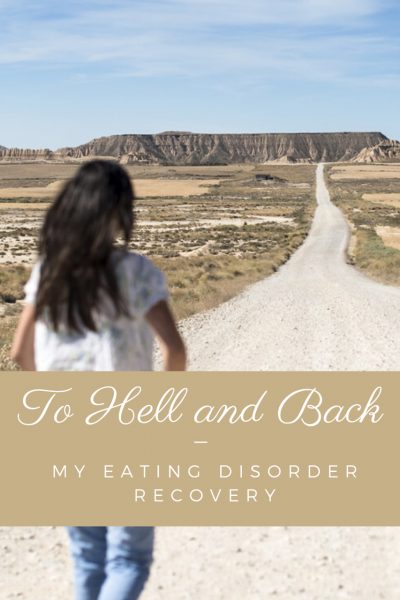
8. “I’m often free from behaviours and thoughts, but not all the time”
This eating disorder recovery stage might be a bit tricky and lengthy. You feel fine most of the time, have become comfortable around food and enjoy eating more and more. But under stress, you go back to your eating disorder behaviours.
I remember a time when I tried on some jeans and they weren’t fitting as loosely as they were two weeks before. This experience triggered my eating disorder thoughts and suddenly I felt bloated and fat; I just wanted to get rid of the gained weight as soon as possible. I had a brief setback during this eating disorder recovery stage and found myself going backwards in my recovery journey. However, it didn’t last long and I was able to pick myself up again.
9. “I’m free from behaviours and thoughts”
You feel mostly good in your body. Of course, you have bad days sometimes, but you have the strength and the tools to keep up with your eating disorder recovery. You can eat things or go to a restaurant without worrying about food or feeling guilty and anxious afterwards. You can look in the mirror or at pictures of yourself and be comfortable with what you see. You are taking control of your life again.
Sometime after I had stopped my eating disorder behaviours, I realised at this eating disorder recovery stage that I was no longer having negative thoughts. I no longer had the urge to count calories or weigh myself. I felt good in my body and ate food without any feelings of fear and guilt.
The 10th eating disorder recovery stage - “I’m recovered”
A long time has passed without any thoughts, feelings and behaviours related to your eating disorder. You are recovered. You can accept and love yourself as you are. Your body is your friend and not an enemy anymore. You have made peace with yourself and food.
I have been fully recovered for several years now and it feels amazing. I can accept my body’s natural size and weight. I enjoy eating without thinking about calories or worrying that I’m eating too much. I can look in a mirror and smile at myself and say positive things about my body. My eating disorder is a thing of my past.
Whatever eating disorder recovery stage you find yourself in, don’t blame yourself. Start from where you are now. It is never too late to recover. Your future is in your hands. The key point is that you need to be willing to change; no one else can do this for you.
You don’t need to struggle alone on your recovery journey.
Simply get in touch to discuss how I can help you.
It is entirely possible to overcome an eating disorder or body hate –
I have done it, others have done it and so can you!
Join the Body Acceptance & Food Freedom Collective
Receive a weekly dose of inspirations to help you make peace with your body and food.
Don’t worry, we hate spam too. You can unsubscribe any time.
You Might Also Enjoy...

Hi there!
I’m Tanja. I’m a qualified psychologist specialising in eating disorders, negative body image and body hate. I’m also a survivor of anorexia.
My mission is to help you to end your lifelong struggles with food and your body and inspire you to uncover and embrace you true worth. Read more…

